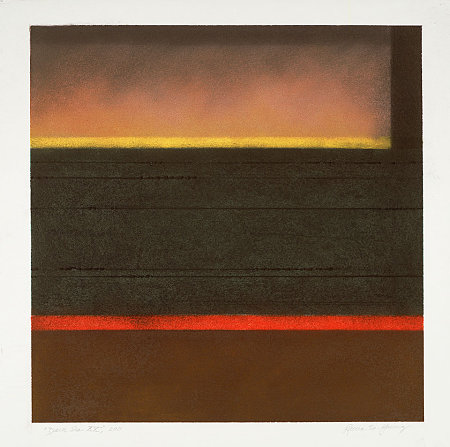
How Could I Not See
at a small café with my husband’s father.
Left by spouses who’ve gone here and there,
we catalogue our silent details. Together,
we share only brief points of view.
He grips a novel and the round table
between us. The bread is white, juice pulped
and tangy. He eats contemplation heartily,
always stooped into it. I sip at tea.
All our words could fill a cup, but then
he asks if I know Dickinson’s 465
(“I heard a fly buzz—when I died—”).
I nod, unsure. Light eases in the corner.
I watch his mouth, and only that, as he recites
and tastes the slight translucent phrases.
I note his mouth’s small moisture,
and how the poem dwells in him
like yeast, how it rises in perfect order
until the salt of Signed away
What portions of me be / Assignable—
I begin to see the tangled space
of all his senses. And then the Windows failed,
he says with shuffled breath, and he is
nearest me, but blurring. The poem pursues us,
not yet finished. He is blinking.
I could not see to see—he nearly weeps.
There is no end to the dark mystery of the old.
At that moment, I ache to know if he’s afraid
of dying, or of living in the endless room
of being dead, but we don’t talk. His blue eyes
start thickening. He pours some coffee, stirs it,
and we sit awkward in ourselves again,
in the only available chairs, with two flat faces.
